Menu

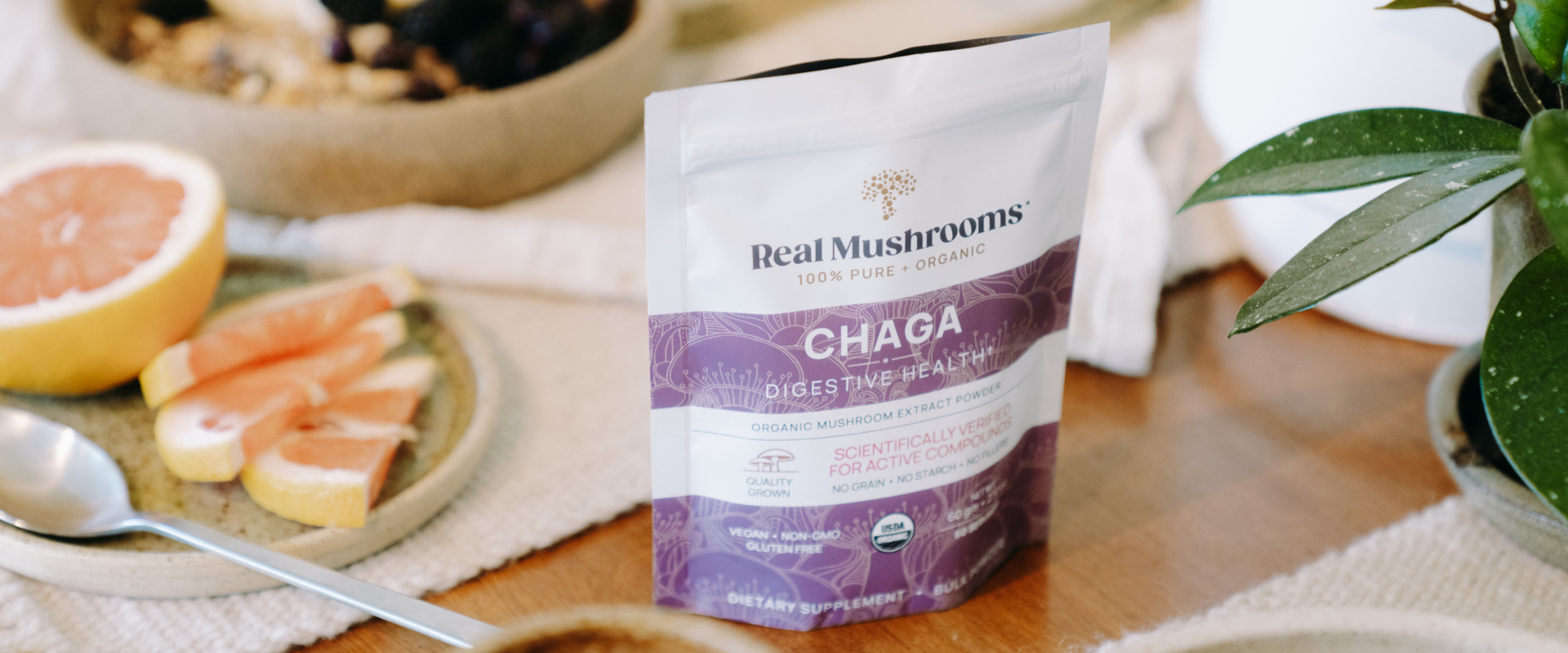

Chaga mushrooms are celebrated for their antioxidant-rich properties and potential to support the immune system and gut health, making them a popular choice in teas and supplements.
Revered in traditional medicine, this functional mushroom offers promising benefits for health maintenance—but like any natural supplement, it’s not without its precautions.
Could ingesting too much chaga mushroom strain your kidneys? Might it lower blood sugar levels to an unsafe degree for certain individuals? Could chaga interact with medications?
For those considering consuming chaga, understanding both its benefits and potential side effects is essential. In this guide, we delve into everything you need to know to safely and effectively incorporate chaga into your wellness routine.
In folk medicine, chaga mushrooms (Inonotus obliquus) are renowned as functional mushrooms due to their unique bioactive compounds and potential health benefits. [1]
Growing on birch trees in cold climates like Russia, Canada, and Scandinavia, Chaga absorbs nutrients from its host tree, resulting in high levels of polyphenols, triterpenes, melanin, and beta-glucans.
Chaga contains bioactive compounds like betulinic acid, betulin, inotodiol, ergosterol peroxides, and caffeic acid, which may offer antibacterial, antiviral, antioxidant, and immune-modulating benefits.
Its high melanin content supports antioxidant activity that may support healthy skin cells. While beta-glucans, a valuable dietary fiber, play a key role in boosting immunity and overall health.
Traditionally consumed as tea or broth, Chaga has long been used to promote wellness, support energy, and maintain a healthy immune response.
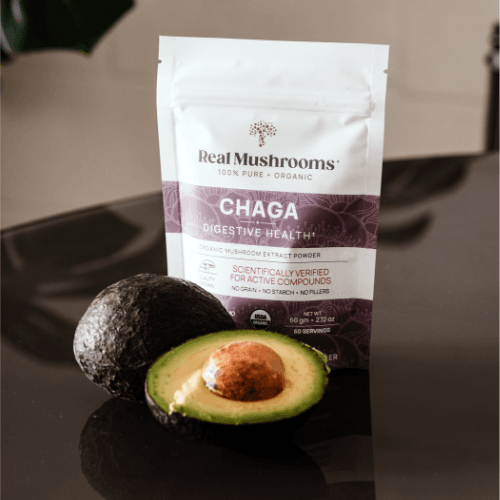
Wild-harvested Chaga is dried and either ground into Chaga mushroom powder or subjected to hot water extraction to isolate beneficial polysaccharides.
Hot water extraction is particularly important as it breaks down the tough chitin cell walls [3] of the mushroom, making its nutrients bioavailable to the human body.
Chaga supplements made from the fruiting body contain higher concentrations of active compounds, such as beta-glucans, providing a more potent option for those taking Chaga as part of their wellness routine.
Chaga provides antioxidants that may help support the body’s natural defenses and overall well-being. Excessive consumption or pre-existing health conditions can influence its safety, making balance and moderation essential to maximizing its potential benefits.

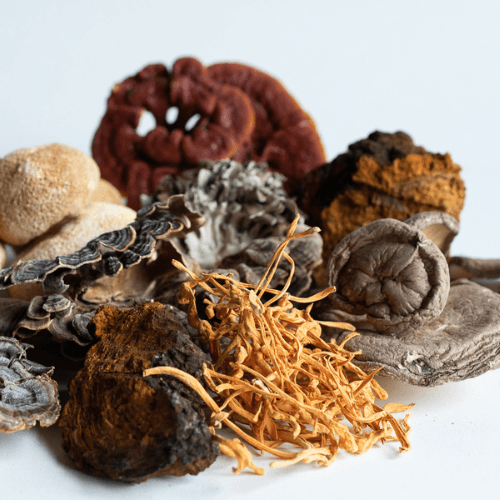
Chaga mushrooms are widely celebrated for their potential health benefits, often enjoyed as an herbal tea or in supplement form. However, consuming Chaga mushrooms requires caution, as their nutrient profile, including high concentrations of beneficial compounds, can interact with certain health conditions or medications.
Understanding these interactions is crucial to ensure Chaga is consumed safely, particularly for individuals managing chronic health issues.
Chaga’s high oxalate content is a primary concern for individuals with kidney conditions. Excessive oxalates are compounds that can bind to minerals and potentially increase kidney strain [2]. Moderation is key when incorporating a Chaga mushroom tincture or supplement into your routine if kidney health is a concern.
Chaga’s polysaccharides may help maintain normal blood sugar levels.
Research shows that Chaga’s hypoglycemic effects [4] may enhance the action of glucose-lowering medications [5], potentially increasing the risk of hypoglycemia.
It is important for those who want to keep their blood sugar balanced to consult a healthcare provider before using Chaga powder supplements to avoid adverse blood sugar fluctuations.
Tea Tips: Learn about chaga tea and why many cultures have historically made it.
Chaga is believed to have anticoagulant (blood-thinning) properties, which can increase the risk of bleeding in those with blood disorders or individuals taking blood-thinning medications.
Chaga’s effects on platelet aggregation may heighten the likelihood of bruising or bleeding complications, especially during surgery or recovery. People with such conditions should use Chaga cautiously and under the supervision of a healthcare provider.
For individuals managing chronic conditions or taking multiple medications, the potential interactions of Chaga powder should not be overlooked. Taking these precautions helps you safely benefit from Chaga’s potential as a functional mushroom and superfood.
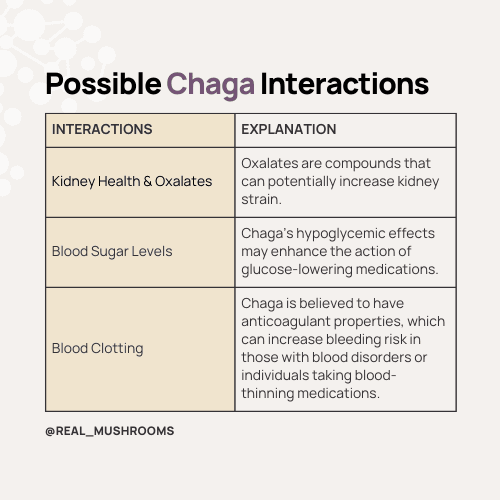
While Chaga mushrooms can offer potential benefits, certain groups need to approach their use with caution. These risks often stem from the effect of Chaga’s nutrient composition and interactions with medications or existing conditions.
If you fall into any of these categories or have chronic conditions, consulting a healthcare provider before using Chaga is strongly recommended. Professionally guided advice can help reduce risks while ensuring its use is aligned with your health needs.
Is Chaga Safe During Pregnancy? As bioactive compounds in Chaga may transfer to breastmilk, their potential effects on infants remain unknown. Consult a healthcare professional before using Chaga to ensure it is safe and appropriate for your situation.
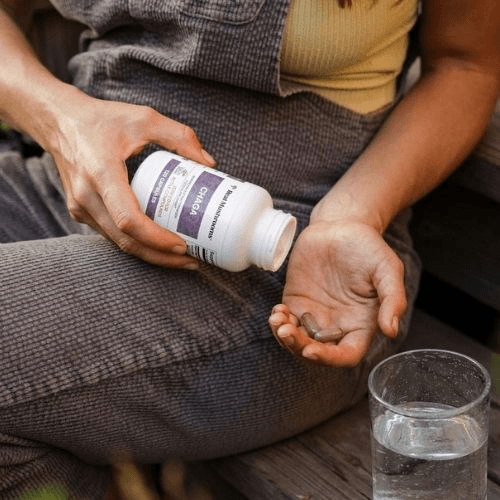
Incorporating Chaga into your wellness routine raises important questions—how much should you take, what’s the best form, and how do you know if it’s safe?
As a functional mushroom, it offers unique benefits. But opting for organic, fruiting-body-based Chaga supplements ensures you’re getting the most active compounds without unnecessary fillers, grains, or starches. This quality and potency set the foundation for balanced and effective use.
Here are some tips to help you get started:
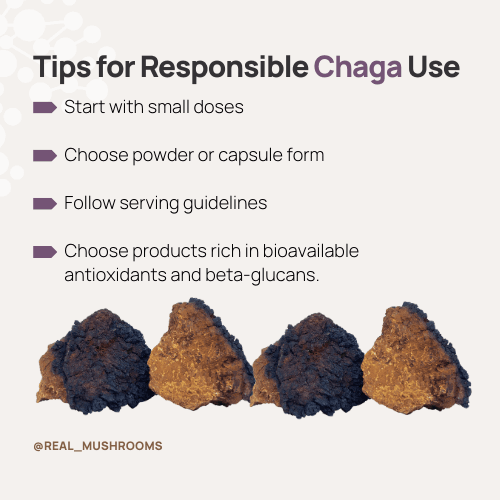
With a thoughtful approach and trusted products, taking Chaga mushroom supplements or herbal tea can be a safe addition to your daily routine.
Known for its potential immune system support and antioxidant effects, Chaga offers unique benefits when consumed responsibly. Choosing high-quality products ensures you gain the maximum health benefits while minimizing risks.
Chaga mushrooms are valued for potentially supporting healthy cells and boosting immunity, but they must be consumed with care to ensure safety and effectiveness. Understanding the potential side effects of Chaga and prioritizing high-quality products over alternatives like cultured mycelia can make all the difference.
At Real Mushrooms, we focus on delivering 100% organic Chaga supplements, free of fillers, grains, or starches, and designed with science-backed quality. By choosing natural, mushroom (fruiting body) products, you’re ensuring the highest concentration of active compounds for your wellness needs.
Explore our range of trusted Chaga supplements and educational resources today to start consuming Chaga mushrooms in a way that supports your health naturally and responsibly.

 .
.Disclaimer: The information or products mentioned in this article are provided as information resources only, and are not to be used or relied on to diagnose, treat, cure, or prevent any disease. This information does not create any patient-doctor relationship, and should not be used as a substitute for professional diagnosis and treatment. The information is intended for health care professionals only. The statements made in this article have not been evaluated by the Food and Drug Administration. Any products mentioned are not intended to diagnose, treat, cure, or prevent any disease. The information in this article is intended for educational purposes. The information is not intended to replace medical advice offered by licensed medical physicians. Please consult your doctor or health practitioner for any medical advice.